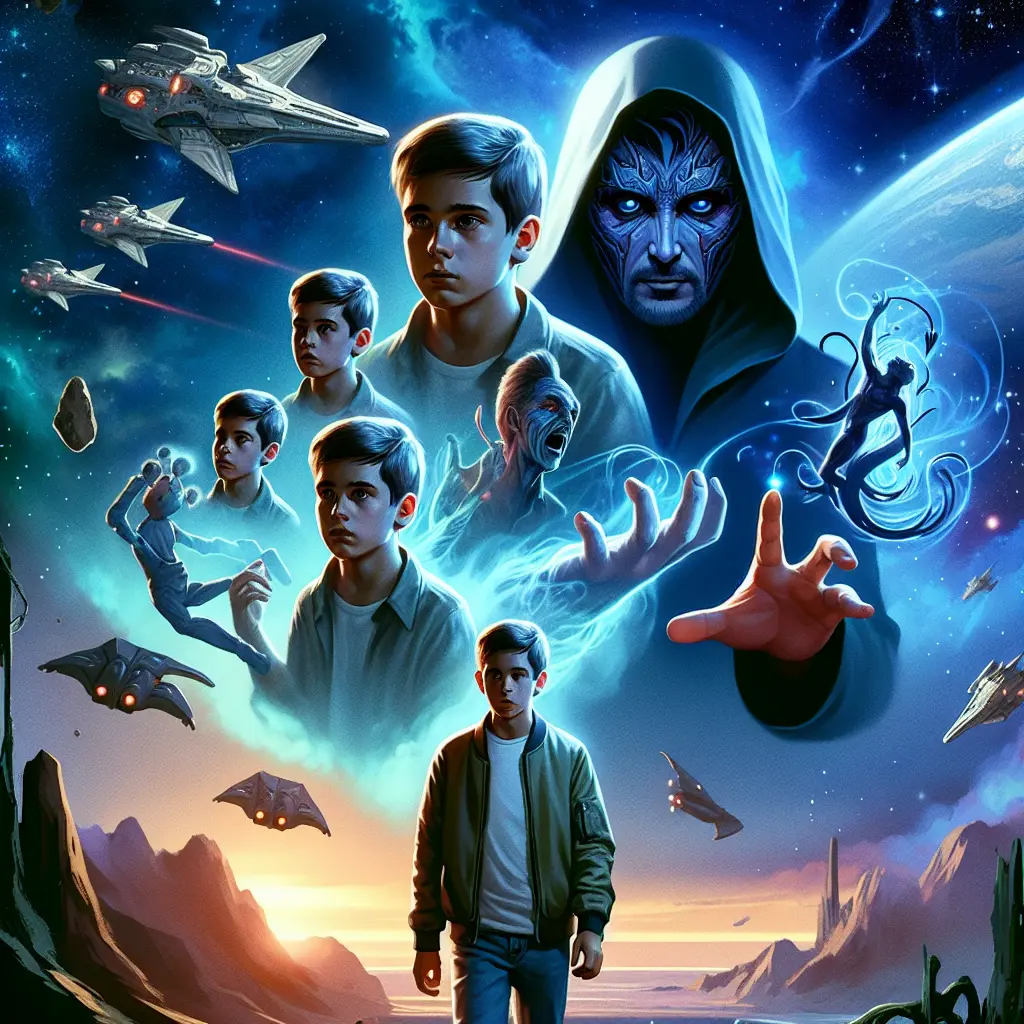
The Star Wars saga, conceived by George Lucas, has not only revolutionized the world of cinema but has also become a fertile ground for exploring complex psychological themes. Among its rich tapestry of characters, Anakin Skywalker's journey from a heroic Jedi Knight to the sinister Darth Vader remains one of the most compelling narratives. In this blog post, we delve deep into Anakin Skywalker's psychological development, exploring how his transformation underscores profound themes of trauma, identity, and moral descent.
Anakin Skywalker's story is a classic archetype of a hero's fall from grace. His life, as depicted across various Star Wars episodes, encapsulates a dramatic shift from potential savior of the galaxy to its feared oppressor. This transition is not just a plot device but a detailed study in psychological evolution—or perhaps, devolution.
Early Beginnings and the Seeds of Trauma
Anakin Skywalker’s backstory is pivotal in understanding his complex psyche. Born into slavery on the desert planet of Tatooine, Anakin's early life was fraught with hardship and loss. The absence of a father figure and his early separation from his mother, Shmi Skywalker, laid the foundational trauma that would impact his later decisions (Lucasfilm, 1999). This aspect of his character resonates with real-world psychological observations that early childhood trauma can significantly influence personality development and behavior in adulthood.
The Role of Fear and Attachment
Anakin Skywalker’s psychological landscape is heavily influenced by fear and attachment issues. Despite his formidable prowess as a Jedi, he is constantly haunted by fear of loss, primarily triggered by the death of his mother and his forbidden love for Padmé Amidala. According to psychologists, such fears can lead to an overwhelming sense of anxiety and a desperate need to control outcomes, which were evident in Anakin’s actions as he sought to prevent his premonitions of Padmé’s death from becoming reality (Lucasfilm, 2002).
The Lure of Power and Promise of Order
Anakin's transformation into Darth Vader was significantly marked by his quest for power, which he believed was essential to save his loved ones and bring order to the galaxy. This psychological shift is crucial in understanding the Darth Vader origin. His gradual embrace of the dark side was fueled by a distorted belief that power was the panacea for his fears and insecurities. This mirrors real-world psychological paradigms where individuals, often feeling powerless and insecure, might resort to authoritarian behaviors as compensatory mechanisms.
Mentorship and Its Psychological Impacts
The role of mentorship in Anakin’s life played dual roles. While Jedi Master Obi-Wan Kenobi was a guiding force for good, Chancellor Palpatine (Darth Sidious) manipulated Anakin’s fears and insecurities to his advantage. This duality of mentorship presents a fascinating area for Star Wars character analysis, showcasing how significant figures can profoundly influence one's psychological development and moral alignments.
The Culmination of Anakin’s Emotional Journey
Anakin Skywalker’s final transformation into Darth Vader is a poignant climax of his emotional and psychological journey. It represents the ultimate surrender to his darker impulses, a tragic conclusion to a series of compounded fears, manipulations, and failures. The Darth Vader psychological profile is a testament to the complexity of human psychology explored in the Star Wars saga.
Reflections from Modern Star Wars Narratives
Recent developments in the Star Wars universe continue to explore similar psychological themes. "Star Wars Jedi: Survivor," set to release on September 17 for PS4 and Xbox One, promises deeper insights into the survivor's guilt and the psychological resilience required in the aftermath of trauma (Electronic Arts, 2023). Additionally, "The Acolyte" star Amandla Stenberg reflects on the duality of her character's journey in the Star Wars narrative, echoing the themes seen in Anakin's story (Disney+, 2023).
Moreover, ongoing series like "The Mandalorian" provide fresh perspectives on themes of redemption and identity—central motifs that were significant in Anakin's storyline. These narratives not only enrich our understanding of the Star Wars psychological themes but also connect them to contemporary issues and reflections.
Conclusion
Anakin Skywalker’s transformation from hero to villain is a profound narrative arc that serves as a rich field for psychological analysis. His story offers insights into how fear, trauma, and mentorship can intertwine to shape one's destiny. As we continue to explore these themes through new characters and stories within the Star Wars universe, we gain not only entertainment but also a deeper understanding of human psychology.
As we look forward to more revelations and analyses in future Star Wars installments, let us remember Anakin Skywalker not just as a tragic villain but as a case study of the complexities of human nature—reminding us that everyone has the potential for both light and darkness within them.
May the Force be with you on your journey through understanding.
—Mason Wheeler